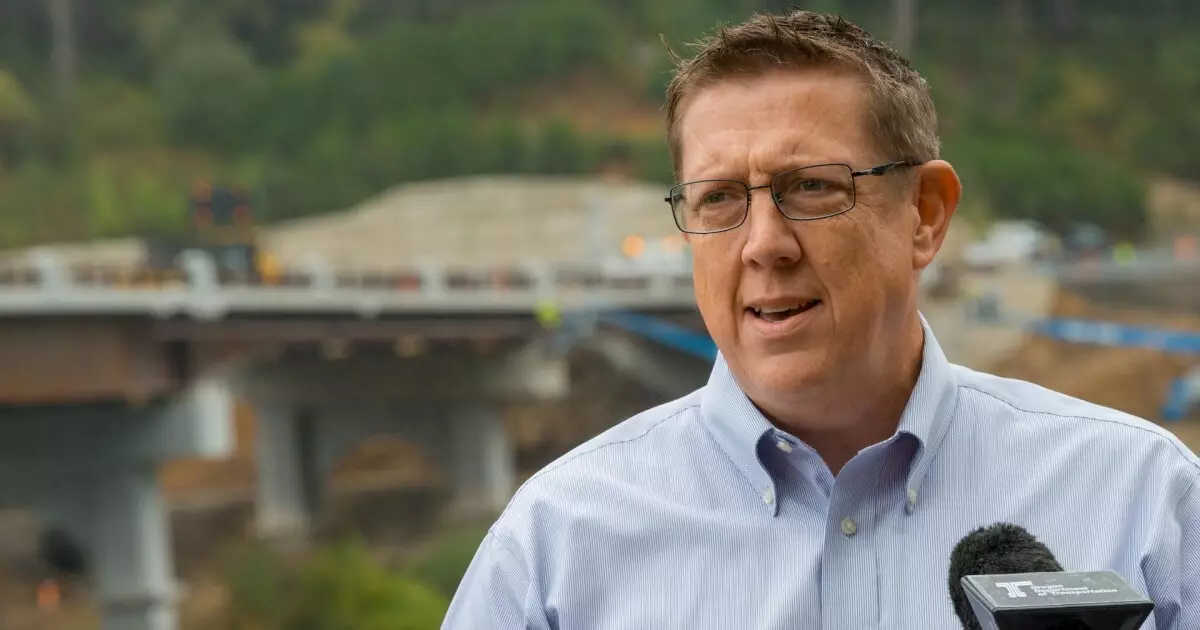Oregon’s transportation system, once vital for connecting communities and fueling economic growth, now teeters on the brink of disaster. The recent failure of state lawmakers to pass a comprehensive transportation funding package has exposed the fragility of the state’s infrastructure and the reckless disregard of political leaders for practical governance. The looming layoffs of up to 700 Oregon Department of Transportation (ODOT) workers are not mere administrative adjustments—they symbolize a catastrophic deterioration of essential services that billions of dollars in maintenance and safety hinge upon.
Oregon’s infrastructure crisis is born out of deep political gridlock. For over a year, legislators have been unable to muster the political will—or perhaps the courage—to pass needed revenue increases. The proposed $14.6 billion package, which sought to modernize, repair, and maintain Oregon’s aging roads, bridges, and transit systems, was thwarted by political infighting and the inability to secure a supermajority. This is the direct consequence of hyper-partisanship, where ideological rigidity halves the capacity for consensus on vital issues. Now, the consequences are bearing down on everyday Oregonians—residents, commuters, and small businesses—whose livelihoods depend on a well-maintained transportation network.
The immediate fallout is devastating: a massive reduction in staffing, service deterioration, and a warning of more profound financial turmoil looming in the future. The agency’s leadership is acutely aware that without new funds, core functions cannot be sustained. This crisis is not due to mismanagement or inefficiency alone but is driven by structural revenue shortfalls rooted in declining gas tax revenues, inflationary pressures, and statutory restrictions that limit the agency’s financial flexibility. When public funds are starved, infrastructure suffers. Roads decay, safety reduces, and the economic engine grinds to a halt—all before any legislative action.
The Political Wheel of Inaction: A Society Suffering from Policy Paralysis
The failure to pass a transportation package is a glaring illustration of political stagnation. Lawmakers’ inability to meet the threshold for a quality bill signifies more than budgetary laziness; it reveals a fundamental disconnect between political priorities and the practical needs of the state. For years, ODOT has issued warnings about the inevitable consequences of funding shortfalls—but those warnings have largely fallen on deaf ears. Instead of addressing the systemic problems, the legislature has opted to leave the agency in limbo, sacrificing Oregon’s future on the altar of ideological disputes.
The consequences extend beyond bureaucratic missteps. State officials, including Gov. Tina Kotek, have hinted at the possibility of special legislative sessions, yet action remains elusive. The societal toll will be immediate and severe: transport workers face unemployment, vital maintenance projects are delayed, and the safety of Oregon’s roads could be compromised. When essential services are sacrificed to political dysfunction, the very fabric holding society together begins to unravel.
Furthermore, the inability to reform or expand the revenue base for transportation reflects a broader issue—an unwillingness or inability of the political class to make tough decisions. Increasing taxes or fees to fund infrastructure is often politically unpopular, but neglecting to do so is even more costly. The current approach demonstrates a shortsighted obsession with ideological purity at the expense of societal stability. If the legislature continues to abdicate its responsibility in funding critical infrastructure, Oregon will face more emergencies, higher long-term costs, and a shrinking quality of life for its residents.
A Society Heading Toward a Critical Crossroads
The financial shortfalls faced by ODOT are symptomatic of a larger national challenge: aging infrastructure, declining trust in political institutions, and a failure of leadership. Oregon’s situation acts as a warning bell for other states, illustrating how political inflexibility can threaten societal safety and economic vitality. The decision to ignore or delay necessary reforms and funding increases imperils the core services that keep a state functioning.
It is a fundamental misunderstanding to see infrastructure as just a series of roads and bridges. These assets are the backbone of economic activity, public safety, and daily life. When governments refuse to prioritize their maintenance, they inadvertently carve the groundwork for future catastrophes—whether those are deadly accidents, economic downturns, or sprawling congestion that strangles growth. Oregon’s current predicament underscores that political will is as critical as engineering expertise—a lesson in how neglect and inaction can have irreversible consequences.
This crisis forces a reflection on the durability and resilience of governance. The political class holds the keys to future stability, yet their failure to act decisively illustrates a broader malaise: a detachment from the pressing realities faced by ordinary citizens. It questions whether political institutions are capable of translating shared societal needs into concrete action, or whether they are merely impediments—entrenching a cycle of decline. If Oregon’s leaders refuse to realize that infrastructure investment is not just a matter of budgets but of civic responsibility, the societal costs will only escalate, leaving a legacy of decline and neglect that future generations will regret.
The coming weeks will become a crucial test of Oregon’s political maturity. Will leaders finally put aside partisanship and focus on pragmatic solutions that safeguard Oregon’s future? Or will they allow this crisis to deepen, further eroding public trust and fueling discontent? The choice is stark, and the window for decisive action is rapidly closing. Oregon’s current crisis exposes the painful truth: political paralysis, if left unaddressed, compounds hardship, fosters societal decay, and ultimately undermines the very foundation of a functioning democracy.

